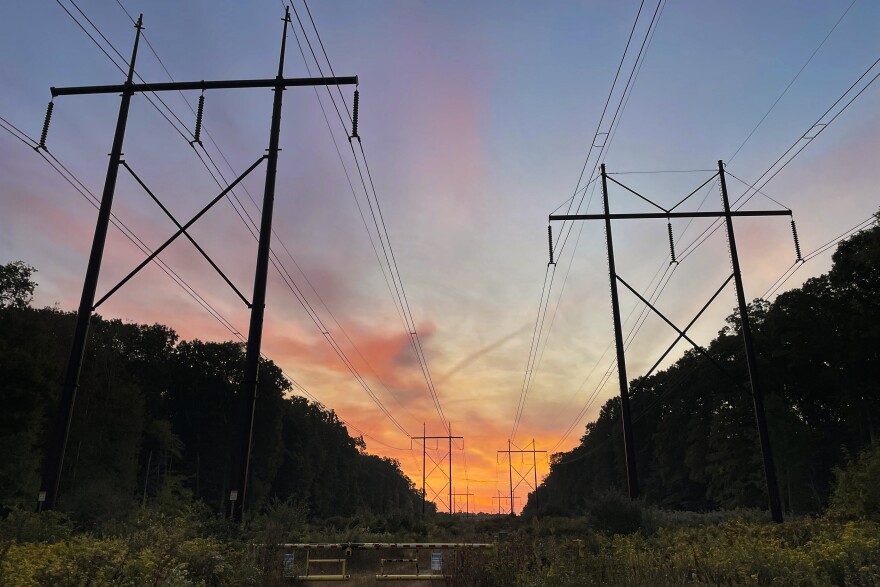At least partially fulfilling a pledge of savings made by lawmakers during the most recent legislative session, the State Bond Commission agreed on Friday to borrow $155 million to aid residents with their electric bills.
The public benefits levy, which funds state-mandated programs that are now under close examination in the broader discussion surrounding Connecticut’s exorbitant electricity costs, was partially paid off by the bonds.
According to officials, users may save an average of $5 to $10 on their monthly electric bills beginning in September by borrowing money to pay for some of those programs. This would depend on usage and the utility that customers use to receive their electricity.
At its meeting on Friday, the panel, which is chaired by Governor Ned Lamont, unanimously approved the borrowing.
Following the incident, Lamont told reporters, “I understand how angry everyone is with electric rates.” Although we didn’t have a significant impact, our reduced rates did make a difference. It depends on what you do with the air conditioner, therefore I can’t guarantee what your bill will be.
Senate Bill 4, the omnibus energy savings bill that senators spent months developing earlier this year, authorized borrowing to give ratepayers direct relief. Early in June, with bipartisan support, the law passed both chambers and was signed by Lamont.
The measure’s supporters first estimated that it would reduce Connecticut’s yearly power bill costs by between $325 million and $350 million, or roughly $100 for the average user.
It is anticipated that the state bonds will account for the majority of the savings, at least initially.
In addition to $30 million to fund the costs of the state’s electric car charging program, the first tranche of borrowing approved by the Bond Commission on Friday contained $125 million to settle outstanding debts that accrued during the COVID-19 pandemic. In the past, both expenses were covered by the public benefits charge.
According to Lamont’s office, another round of borrowing is anticipated the following year. The related savings, if authorized, will continue until early 2027.
Republicans advocated for an even larger savings package during the negotiations over S.B. 4, eliminating the public benefits levy from customers’ bills entirely and funding those programs out of the state budget instead.
Even though that may have saved customers up to 20% on their bills, Democrats, including Governor Lamont, found the anticipated $1 billion yearly cost unacceptable and claimed they would have had to reduce spending elsewhere.
Republicans joined Democrats in approving the bonds on Friday, but several criticized the amount of savings.
Rep. Joe Polletta, R-Watertown, a member of the Bond Commission, stated that it doesn’t go far enough. It’s a good beginning, and I believe both parties deserve credit for the bill’s negotiation. However, Republicans have been advocating for a further reduction in the public benefits charge and moving many of those items into the general fund so that we can discuss, hold a public hearing, and vote on them.
The bond savings are in addition to the rate relief that most customers already received in July due to a decrease in standard supply rates at United Illuminating and Eversource, the two biggest utilities in the state. Rate changes that reduced the public benefits charge component of customers’ bills were also approved by the Public Utilities Regulatory Authority in May.
According to Sen. Norm Needleman, D-Essex, one of the main authors of S.B. 4, “there are things that are happening naturally anyhow, and then there are things that are happening because of our bill getting passed.”
He continued, “Hopefully, this piece hits in September and lowers the bill even more.”
S.B. 4 permitted utilities to securitize their storm costs and implement sophisticated metering technologies in addition to borrowing from the public. Utility customers will repay those bonds—which were not on the Bond Commission’s Friday agenda—through the public benefits fee, but at lower interest rates and over a longer time frame than is currently the case.
The bond commission authorized the following on Friday, its other business day:
- Nearly $1.6 billion in transportation bonding to finance a wide array of upgrades to Connecticut s aging network of highways, bridges and rail lines. Two of the largest initiatives involve $157.5 million to replace the Norwalk River Rail Bridge, a four-track span that serves the Metro-North commuter line and Amtrak s Northeast Corridor lines, and $50 million for continued rehabilitation of the Gold Star Memorial Bridge, which carries Interstate 95 across the Thames River between New London and Groton.
- $40 million to cover the first half of the $80 million Town Aid Road grant due to Connecticut municipalities this fiscal year. Communities use those funds to cover repaving, drainage work and other routine road maintenance and to purchase sand, salt and other materials to support winter snow removal. The state is expected to deliver the remaining $40 million due cities and towns after Jan. 1.
Keith M. Phaneuf, a reporter for the CT Mirror, contributed to this article.
The Connecticut Mirror was the first to publish this story.






